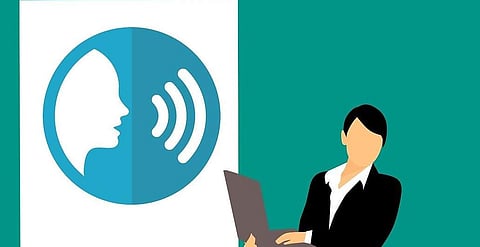

The present scenario calls for effective communication skills. It is the glue that binds people and organisations together. The personality of an individual is defined on the basis of good communication skills. In order to voice your feelings and thoughts effectively, you need to have effective communication skills that are a reflection of your personality. Indeed, it is indispensable to express yourself effectively in each and every facet of your life. The ability to communicate or interact with others paves the way to a healthy and constructive association that improves your interpersonal skills. Generally, people with good communication skills grow faster when compared to other people with poor communication skills. In addition to it, a good speaker knows how to create an impact, connect and express himself with a variety of people as per the need of the hour. Effective communication skills comprise a few important aspects while communicating with others. These are: first, body language that communicates a lot about one’s personality through non-verbal gestures and signals; second, the communicator must plan, organise and be clear in thoughts; third, appropriate tone, pitch, the intensity of the voice and emotions while communicating with a natural essence; fourth, confidence and consistency-level should be high at all times while interacting for productive outcomes. Therefore, the attitudes, feelings, wisdom of body language and gestures reflect the personality traits of the communicator. To be accommodated in a heterogeneous team, the above aspects are essential to build a team, promote teamwork, lucidity and transparency in thoughts, especially at the workplace for effective work culture.
Now the question comes, what is the significance of effective communication in modern times? Well, everyone must agree that without effective communication no family, school, office, business industry or organisation can run smoothly. Therefore, JM Millet rightly pointed out that, 'Communication is the bloodstream of any organisation'. Effective communication is required to establish, strengthen and distribute the roles, goals and objectives to accomplish the duties within a time frame. At the same time, it reduces rumours and speculations, gives motivation to work in the right direction by maintaining good interpersonal skills with each other.
Apart from this, it is noticed that there are few challenges or problems faced by people while communicating with another person. For example, sometimes when people keep talking excessively about their own expertise and wisdom in a particular arena of life and displaying their subject knowledge, it leads to a one-sided conversation that discourages the other speaker from sharing his perspective or opinion on the same. Another noteworthy point is disagreement of thoughts, opinions and outlooks is very common in the world, one may fail to communicate effectively by raising their voice or speaking without listening to the other person because listening skills are equally important for better communication skills. Aggressive communication spins around ‘I’ that is ‘I am correct’, which is absolutely wrong. In fact, some cook up stories that go beyond facts and figures and create unnecessary confusion in the conversation.
Now let’s go through how one can overcome and improve common communicative problems by putting in the passion and dedication required in order to raise one’s standard from an ordinary speaker to an extraordinary orator. First of all, keep the language simple instead of using flashy and flowery words. It is also advisable to read every day, take notes and practise in small segments beforehand. Furthermore, it is not necessary to speak continuously at a stretch, rather a short pause along with confidence, appropriate body language and eye contact are necessary to reach people. Another interesting aspect of communication is the use of empathy, that is, to understand the feelings, sentiments and the position of the other person which will surely work and set one apart from the rest.
We all must agree that good communication skills are the key to success. Indeed, communication skills can be polished, shaped or developed with regular training and practice. Yes! Practice does make a difference. Furthermore, despite profession, age group or language, it is advisable to keep your ducks in a row, make the audience realise that speaker is well-prepared and organised.
Isha Sharma is a PhD Scholar in English and Dr Swayam Prabha Satpathy is an Associate Prof of Communication from Siksha ‘O’ Anusandhan (Deemed-to-be University)
